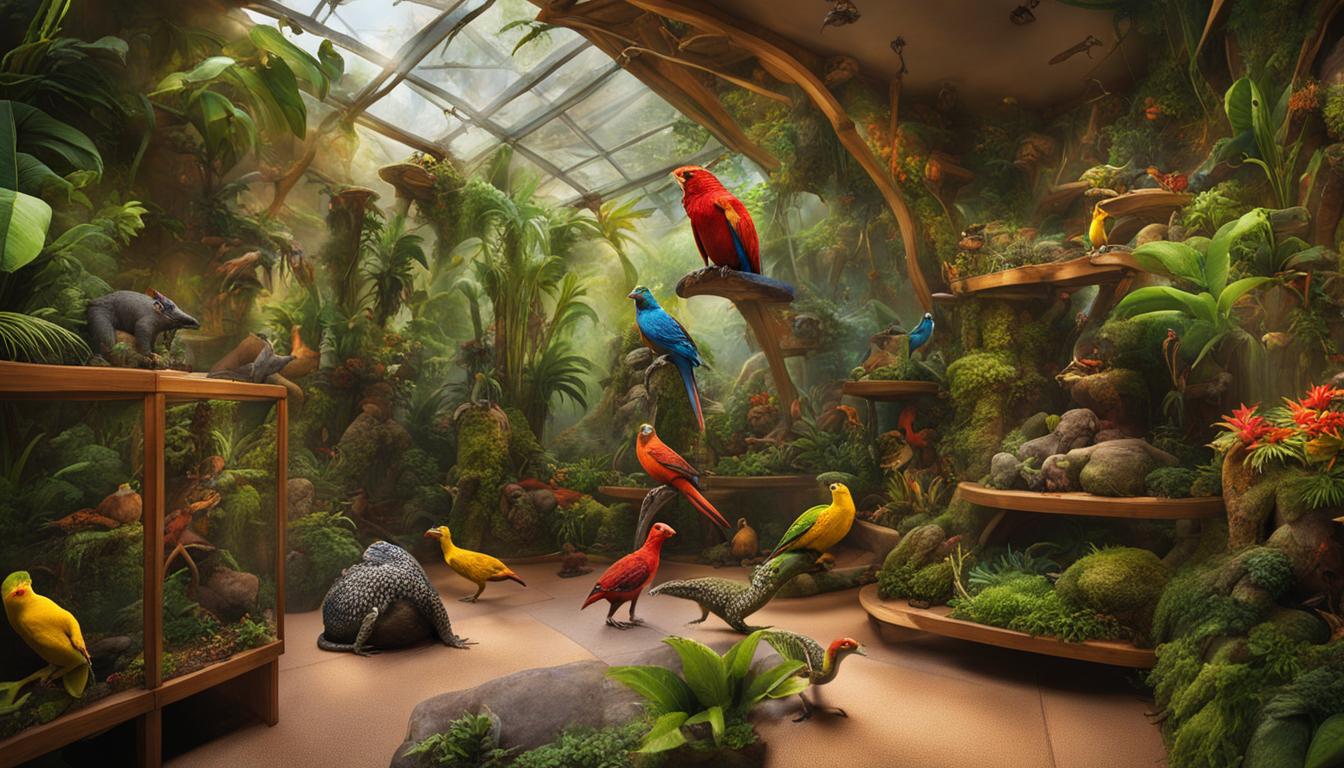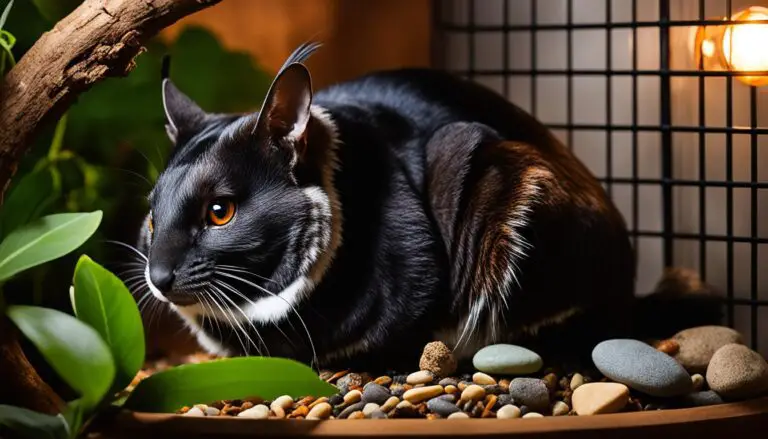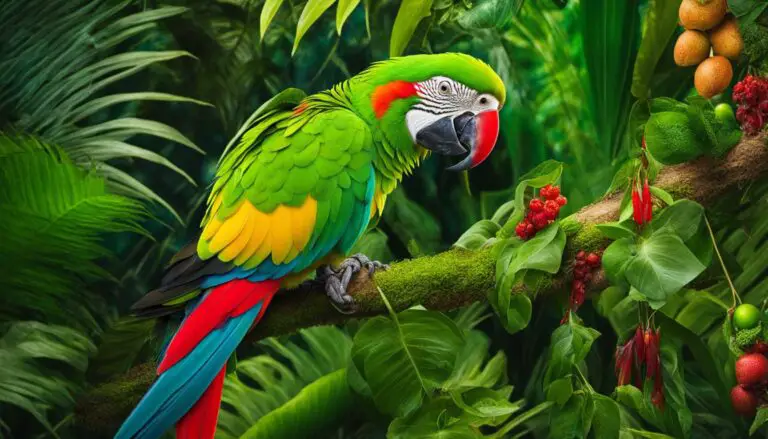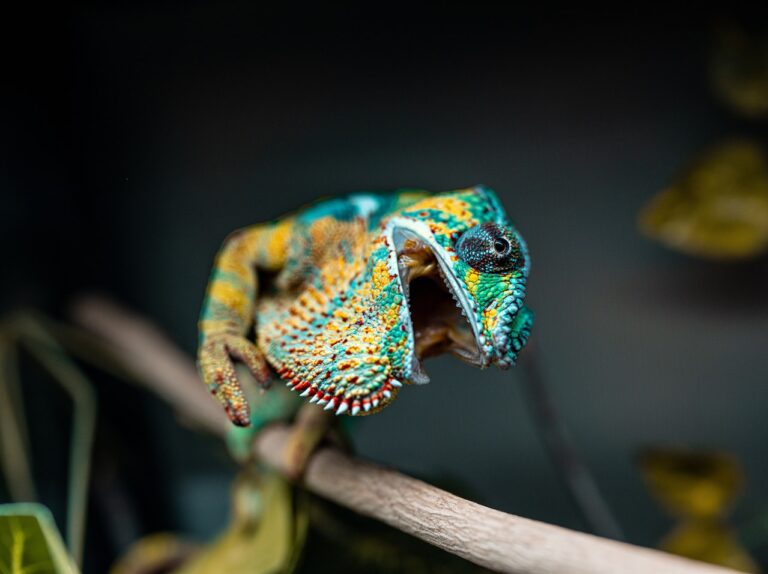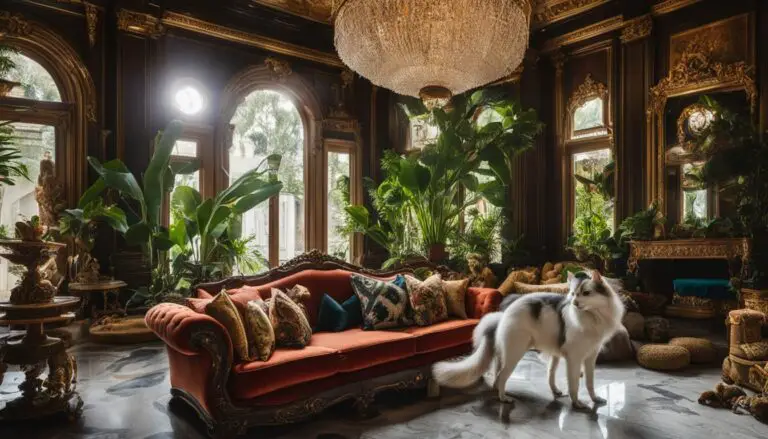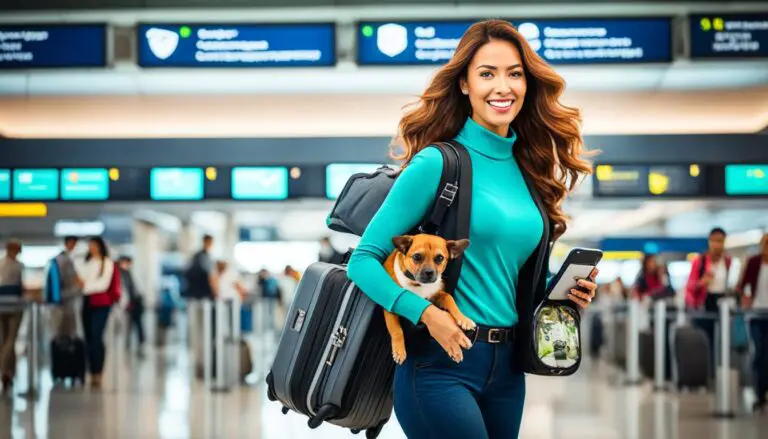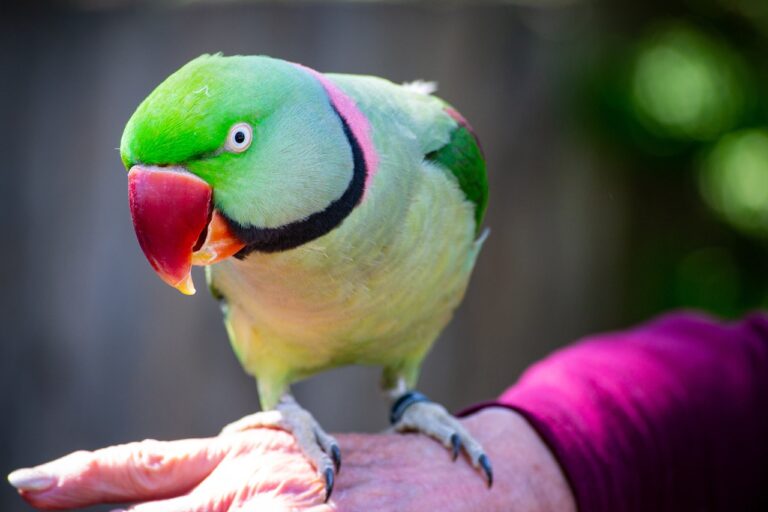Exotic Pet Care for Indoor Pets: Your Comprehensive Guide
Welcome to our comprehensive guide on exotic pet care for indoor pets. Whether you’re a proud owner of a reptile, a rodent, or even a bird, this guide will provide you with essential tips and expert advice to ensure the well-being of your indoor exotic pets. From creating a safe and nurturing environment to providing proper nutrition and enrichment, we’ve got you covered. Let’s dive in!
Key Takeaways:
- Understanding the unique needs of indoor exotic pets is crucial for their well-being.
- Creating a safe and nurturing environment is essential for the health of your pet.
- Proper nutrition and diet play a significant role in your exotic pet’s overall health.
- Enrichment and mental stimulation are essential for indoor exotic pets.
- Regular veterinary care is vital to detect any health issues early on.
Understanding the Unique World of Indoor Exotic Pets
Indoor exotic pets, such as rodents, rabbits, ferrets, reptiles, amphibians, birds, and more, come from various species and require specialized care. Each species has unique characteristics, behaviors, and needs that must be understood to provide optimal care. Being aware of these factors will help you create an environment that meets their specific requirements and ensures their overall well-being.
When it comes to understanding indoor exotic pets, it’s essential to consider their individual species. Here are a few examples of the unique needs and characteristics of different types of indoor exotic pets:
- Rodents: Some rodents, like guinea pigs, require social interaction and mental stimulation, while others, like hamsters, are more solitary.
- Rabbits: Rabbits need plenty of space to hop and play, as well as a diet rich in hay and fresh vegetables.
- Ferrets: These playful creatures require a large enclosure, plenty of toys, and regular opportunities for exercise.
- Reptiles: Reptiles, such as snakes and lizards, have specific temperature and humidity requirements, and their diets vary depending on their species.
- Amphibians: Amphibians, like frogs and turtles, require a suitable habitat with access to water and land, as well as a balanced diet.
- Birds: Birds need a spacious cage, plenty of mental stimulation, and a diet consisting of pellets, fresh fruits, and vegetables.
By taking the time to understand the unique characteristics and needs of different indoor exotic pets, you can create a nurturing environment that promotes their well-being and allows them to thrive. Providing appropriate housing, nutrition, social interaction, and mental stimulation are all crucial aspects of caring for indoor exotic pets.
Characteristics of Indoor Exotic Pets
| Indoor Exotic Pet | Characteristics |
|---|---|
| Rodents | Varying social needs, require a suitable habitat and mental stimulation |
| Rabbits | Require ample space, hay-rich diet, and regular exercise |
| Ferrets | Playful and energetic, need large enclosure and opportunities for exercise |
| Reptiles | Species-specific temperature and humidity requirements, varied diets |
| Amphibians | Require suitable habitat with access to water and land, balanced diet |
| Birds | Need spacious cage, mental stimulation, and balanced diet |
Creating a Safe and Nurturing Environment for Your Exotic Pet
When it comes to caring for your indoor exotic pet, creating a safe and nurturing environment is essential. Providing the right housing, climate control, hygiene, and regular maintenance are all crucial factors in ensuring the well-being of your beloved companion.
Choosing the Right Location and Housing
To start, select a quiet and draft-free area for your pet’s enclosure. Exotic pets thrive in a calm and peaceful environment, so it’s important to minimize noise and disturbances. Additionally, make sure the enclosure is escape-proof and inaccessible to larger pets in your home. This will prevent any potential accidents or conflicts.
It’s also vital to consider the specific needs of your exotic pet’s species. For prey species, such as rodents or birds, providing a stress-free environment is crucial. This can be achieved by creating hiding spots, offering plenty of enrichment activities, and providing a designated area for rest and relaxation.
When it comes to housing, there are a variety of options available depending on the species of your exotic pet. From cages and terrariums to enclosures and aviaries, choose a suitable housing option that provides ample space and meets the specific needs of your pet.
Remember, the safety and comfort of your exotic pet should always be a top priority. Take the time to research and understand the housing requirements for your specific species to create a secure and suitable living environment.

| Housing Considerations | Benefits |
|---|---|
| Selecting a quiet and draft-free area | Ensures a calm and peaceful environment for your pet |
| Escape-proof and inaccessible enclosure | Prevents accidents and conflicts with larger pets |
| Catering to prey species’ needs | Reduces stress and provides a stress-free environment |
| Choosing suitable housing | Provides ample space and meets specific pet requirements |
Exotic Pet Care for Indoor Pets: Nutrition and Diet Essentials
Providing a proper diet is crucial for the health and well-being of indoor exotic pets. Each species has specific nutritional requirements based on their natural diet in the wild. It is important to research and provide a diet that closely replicates their natural food sources. Consult with a veterinarian experienced in exotic pet care to ensure you are offering a nutritionally balanced diet that meets the specific needs of your pet.

When it comes to feeding indoor exotic pets, it’s important to consider their unique dietary needs. Some exotic pets may require a specialized diet that includes a combination of fresh fruits, vegetables, insects, and high-quality commercial food specifically formulated for their species. Others may have specific dietary restrictions or nutritional supplements that need to be incorporated into their diet.
Research is key when it comes to understanding the nutrition requirements of your indoor exotic pets. Learn about their natural diet in the wild and try to replicate it as closely as possible. This may involve purchasing live insects or small prey items, such as mice or rodents, for feeding certain species. Alternatively, some pets may thrive on a predominantly plant-based diet, supplemented with appropriate vitamins and minerals.
It’s essential to consult with a veterinarian who specializes in exotic pet care. They can provide guidance on the specific nutritional needs of your pet and recommend appropriate commercial diets or dietary supplements. They may also perform regular check-ups and monitor your pet’s overall health and weight to ensure they are receiving the right amount of nutrients.
Remember, maintaining a balanced diet is essential for the overall well-being of your indoor exotic pets. Avoid overfeeding or providing them with foods that may be harmful or toxic to their species. Regularly assess their body condition and adjust their diet accordingly to prevent obesity or malnutrition.
| Nutrition Tips for Indoor Exotic Pets | Important Considerations |
|---|---|
| Research and understand the natural diet of your pet species | Use this information to create a nutritionally balanced diet |
| Consult with a veterinarian experienced in exotic pet care | They can provide dietary recommendations and monitor your pet’s health |
| Avoid overfeeding and provide appropriate portion sizes | Prevent obesity and related health issues |
| Monitor your pet’s body condition and adjust the diet as needed | Prevent malnutrition or nutrient deficiencies |
| Ensure access to clean, fresh water at all times | Hydration is essential for the overall health of your pet |
Providing Enrichment and Wellbeing for Indoor Exotic Pets
Indoor exotic pets thrive on mental and physical stimulation, and providing them with enrichment activities is essential for their overall wellbeing. Engaging your pets in interactive toys and activities is a great way to keep them entertained and fulfilled. By offering species-appropriate toys and promoting companionship, you can ensure a stimulating and fulfilling environment for your beloved companions.
Interactive Toys and Activities:
- Provide species-appropriate toys that engage your pet’s senses and encourage exploration and play. Different exotic pets have different preferences, so it’s important to choose toys that are suitable for their species.
- Regularly rotate toys to prevent boredom and maintain mental stimulation. Introducing new toys and changing the arrangement can keep your pets interested and curious.
- Offer puzzle toys or food-dispensing toys to encourage problem-solving and foraging behaviors. These toys stimulate your pet’s natural instincts and provide mental exercise.
To further enhance their wellbeing, consider incorporating the following enrichment ideas:
1. Provide hiding spots and climbing structures that mimic their natural habitats.
2. Set up a safe and secure outdoor enclosure or allow supervised outdoor playtime for pets that can benefit from fresh air and exposure to natural sunlight.
3. Utilize music or calming sounds to create a soothing environment for your pets.
4. Allow opportunities for social interaction with other pets or species-appropriate companions to prevent loneliness and promote socialization.
Remember, every exotic pet is unique, and it’s essential to understand their individual needs and preferences. By incorporating these enrichment activities into their daily routine, you can ensure that your indoor exotic pets live happy, stimulated lives filled with companionship and enjoyment.
Conclusion
Caring for indoor exotic pets requires dedication, knowledge, and commitment to meet their unique needs. By understanding their species-specific requirements, creating a safe environment, providing proper nutrition, and engaging them through enrichment, you can ensure their health and well-being.
Regular veterinary care and monitoring play a crucial role in maintaining the health of your indoor exotic pets. Routine check-ups and examinations allow early detection of any signs of illness or health issues, ensuring timely intervention and treatment.
Remember, by providing the best care for your indoor exotic pets, you not only promote their physical well-being but also cultivate a rewarding and fulfilling companionship. The joy and bond you share with your pets are unparalleled, making it all worthwhile.
Source Links
- https://www.happyhealthypets.com/pet-resources/comprehensive-guide-to-caring-for-exotic-pets
- https://griffinexotics.com/exotic-pet-care-questions-guidelines/
- https://alpineanimal.net/unique-care-for-unique-pets-providing-proper-care-for-exotic-pets/
Peter Stones is the founder of Exotic Pets Place, the leading online resource for exotic pet care information.
With over 10 years of hands-on exotic pet ownership experience, he is deeply passionate about sharing his expertise to help others properly care for their unusual pets.
When he's not writing extensively researched articles or connecting with fellow exotic pet enthusiasts worldwide, you can find Peter at home tending to his own beloved menagerie of exotic animals.

